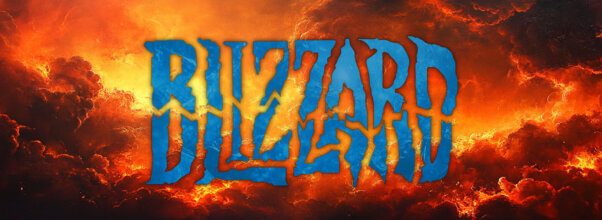With the recent publication of Jason Schreir’s book Play Nice: The Rise and Fall of Blizzard, the topic of the Irvine studio’s demise is being hotly debated. I am reading Schrier’s book now and hope to review it in the future.
I found this illuminating essay about the demise of Blizzard Entertainment on LinkedIn by Ryan Watterson who is currently working for Elon Musk’s AI Grok company.
Slowly but surely, astute observers are putting together pieces of the puzzle to find out what really happened at Blizzard. If the video game industry is to have a viable future, we need to be open-minded and honest about what went wrong.
–Wolfshead
P.S. I have taken the liberty to add headings to Ryan’s thought piece to help with readability. Enjoy!
The Fall of Blizzard Entertainment
Let’s talk about Blizzard Entertainment, and what went wrong there. Once the golden child of the games industry, at least since my youth, Blizzard has completely lost the goodwill of the audience. Forbes-level essays are abundant, placing the blame on Bobby Kotick and the friction between Mike Morhaime and the evil corporate overlords.

The Moment Blizzard Died
The truth is, you can pinpoint the exact moment when Blizzard died: November 4th, 2018, when Blizzard gathered all their biggest fans in one place and sarcastically insulted them: “You guys don’t have phones?” And the internet turned on them in an instant and never recovered. Just like a relationship ends when the cheating happened, or a friendship ends when a line gets crossed, and not in the precipitous decline that follows, that was the moment Blizzard got dumped.
Popularity Over Quality
Quality matters, but what matters more is popularity. And Blizzard lost the support of its audience. Audiences are coalitional. They are not numbers on a spreadsheet. They are cliques in a cafeteria. And it is not difficult to understand the sociology of their likes and dislikes. Blizzard decided to, in front of its audience of hardcore PC gamers, cater to a separate and incompatible sociocultural tribe, mobile phone casual players, at the expense of its existing audience. It didn’t just sleep with someone else — it slept with its girlfriend’s enemy and proudly bragged about it. Relationship over.
Ego and Market Missteps
But why did they lose the pulse of the market? It’s because of ego. WoW exploded and they thought they could do no wrong.
When WoW’s competitors innovated on WoW’s failure points — SWTOR improving the leveling experience by adding story, siphoning off solo players who just enjoyed leveling, not raiding or socializing, DCUO adding lightning-fast movement options eliminating downtown as much as possible — WoW decided to almost exclusively cater to keeping its high-end hardcore player base engaged, when the popularity of WoW was driven by its universal accessibility. Instead of going broad and catering to many types of players, they went deep.
Similarly, Diablo didn’t pay attention to what its competitors were doing in the space. While they were developing Diablo 4 for 6 years, other smaller more agile companies were improving on the Diablo formula — Path of Exile, Hades, Marvel Heroes and Borderlands. Blizzard was focused on refining a formula that felt archaic by the time it released in 2023.
Industry Mantras and Mediocrity
But why did Blizzard make these mistakes? They followed the mantras of the industry.
- “Ideas don’t matter, only execution,” — they hired a large cinematic graphics team, a massive programming arm, and like every other corporate game studio, staffed a factory-style construction crew that builds things with impeccable production quality devoid of creative ideas.
- “Don’t hire genius divas, hire team players,” and so they hired only yes men and mediocre people who go along to get along and developed mediocre products as a result.
Hiring the Wrong People
But Blizzard in specific also did something else that the industry was quite rife with: they hired popular people, not talented people. In an industry that was created by awkward nerds who had no social or financial rewards, they desperately wanted to be cool, so they hired popular kids and cool kids and everyone else who showed up not because they loved games or had intuitive broad knowledge of games or good taste, but because they wanted to be part of the trending thing. The money men, the frat guys, the activists, the clout chasers, the careerists, all the hangers-on.

Unlike the essayists at Forbes jumping on salacious leaks about the palace intrigue of ATVI, I was there and I watched it all happen in real-time over years.
Anyway, that’s why I let my audience pick my last trailer on my YouTube channel with a poll. Because I wanted their goodwill, and to show gratitude for showing up to my channel knowing I wanted to branch out from jRPGs but I still care about their support and I value that core coalition of my audience.
Because I saw Blizzard faceplant, turn into a Ship of Theseus, and implode.
Conclusion
Believe it or not, I have a plan here. There is a reason I left the games industry and pivoted into AI. There is a reason I moved to Texas and joined Elon Musk’s AI company. There is a reason I started making AI movies. As the reasons become clear to other people, it might also become clear that the moves they begin to make when they see them, I began making 2+ years ago. Whether my plan works, we will see. I am an existentialist, and my life experience is wide, varied and extreme, with big swings, big hits and big misses. I am more interested in seeing what happens, and not being bored.
New AI trailer next week. I don’t want to give it away but it’s about robots.





Diablo Immortal… one could argue they were already rotten before, that on this day they just revealed that they lost touch with their player base.
Diablo IV: Not only satanic, as a game even more a downgrade. I am the outlier who still says Diablo 1 was better than 2, but 3 and 4 for sure already showed signs that Blizzard doesn’t have it anymore, despite both games still being successful.
Dragon Age Veilguard might bury Bioware for good. It is sad to see so many series/franchises fail, but it is for the better.
Wokeness has invaded game studios. Just watch on Twitch and Youtube what infantilized, woke nonsense Bethesda produced for Fallout Day, for an audience likely rather ages 30+ if not much older, the Fallout TV series for people ages 18-34 and they… oh well.
This video will show you all that goes wrong in corporate culture and what HR, CMs and Marketing produce. It unfortunately also effects the creators, who are ofc joined by the token mixed race colorful hair female, not yet a trans person, seems they are not yet fully insane, cough, cough.
“It’s because of ego. WoW exploded and they thought they could do no wrong.”
Yeah. They learnt their lesson, but they got overwhelmed by an influx of woke new staff in the end, who then so shamefully disposed of them. And Metzen is now a puppet… oh well.
Blizzard won’t produce new stuff anymore. Bethesda similarly. See how Starfield aped without success to be Skyrim in space. They failed.
Congratulations on your new job, which sounds interesting. Working for Musk also guarantees you are probably not a trans person with colorful hair and no skills, but the opposite. 😉
Really, Musk’s companies hire on merit, so congratulations and I hope you enjoy your new job. It is way better than the degenerate hell the games industry has become. Bad for us gamers, indies hopefully will fill the void till things finally get turned around and rectified. It takes quite a lot more franchise failures to stop the woke juggernaut, I am afraid.
To clarify, Ryan Watterson got the job with Elon Musk, not me.
“I am the outlier who still says Diablo 1 was better than 2”
I’m with you there. D1 was great and I never fully warmed up to D2. I didn’t hate D3 because I still felt like a holy warrior (the crusader) against evil but the writing was garbage. D4 just doesn’t interest me at all. Blizzard has extremely talented artists and programmers, as this article points out. But their writing is crap and their ideas are terrible.